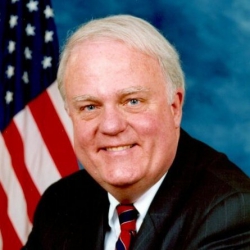The long-awaited congressional hearing of the Restoration of America’s Wire Act legislation is set for March 24. The case for an anti-online gambling bill that would ban online casinos and poker sites across the United States is set to take place before the House Subcommittee on Crime, Terrorism, Homeland Security, and Investigations.
The bill, which is backed by Sheldon Adelson and is champion in the House by Jason Chaffetz, has been a topic of discussion among the US Internet gambling community since March 2014. That’s when Rep. Jason Chaffetz and Sen. Lindsey Graham introduced the RAWA bill to both houses of the U.S. Congress.
2014 Legislative Session
For most of 2014, the bill languished in congress. Most Beltway observers gave the legislation between 1% and 2% chance of passing, though one alarmist expert gave it a 7% of passing. In either case, it was no surprise when Sen. Chuck Grassley declined to place the bill in the spending Omnibus in December 2014, thus killing RAWA’s chances in the last congress.
The 114th Congress always was likely to be a more dangerous time for online gambling proponents. The Republicans now have control of both houses of Congress. Jason Chaffetz now control an important committee, so he is in a position of leverage. Lindsey Graham is running for the US president and he needs Sheldon Adelson’s money to stand out from the remainder of the GOP pack of candidates. If ever a bill is going to be passed, it’s in 2015.
Chaffetz Spoke to Lottery Officials
In 2015, Jason Chaffetz is sounding increasingly aggressive. While he is trying to champion the power of the federal government to tell all 50 states what they can and cannot do, he is claiming to be representing states rights in the debate. Mark Hichar, a gambling attorney working with the state lottery industry, sat in on a recent teleconference between Rep. Chaffetz and lottery officials.
Hichar told reporters afterward that he could not understand the congressman’s stance. Hichar said, “It seemed very odd that you would expect a state to file federal legislation to enable it to be able to conduct gaming in its borders. I found that statement to be surprisingly aggressive.”
States Rights and Geolocation
The bill is starting to gain powerful opponents from the Republican establishment. They do not seem to be buying the rhetoric that Chaffetz and Graham are supporting a state’s right to create its own laws. Under their logic, a state like South Carolina or Utah is having its right impinged by New Jersey, because it is legalizing sports betting. They seem to believe that players in South Carolina and Utah could sign up and play on the licensed and regulated New Jersey websites, so their states’ ability to set its own laws are being damaged.
In truth, geolocation software assures that the regulated New Jersey gambling websites will not allow people in South Carolina or Utah (or anywhere else outside New Jersey) to gamble. Because of GPS tracking, a well-known and widely-trusted technology, people in those states cannot sign up at a regulated online casino or poker site. They can at an unregulated site, which is all that would exist if RAWA was passed into law.
Constitutional Issue
That’s getting into a technical argument with the Sheldon Adelson’s politicians. What the Republican establishment prefers to debate is the constitutional implications of the bill. In fact, people on both sides of the aisle are concerned.
Of course, New Jersey, Nevada, and Delaware are opposed to RAWA, because they have legalized online gambling. A dozen other US states, such as Georgia, are opposed to Chaffetz and Graham, because their bill would destroy their online lottery sales. Another dozens states which want to create online state lottery sales are also opposed.
Grover Norquist Against RAWA
Grover Norquist, the embattled Republican icon, NRA board member, and anti-tax advocate, is also opposed to the RAWA. Norquist, along with a growing number of Republican public policy groups, are opposed to Restoration of America’s Wire Act on constitutional grounds.
They believe RAWA is a vast expansion of the federal government’s power to trample states rights and individual liberties. If the US Congress can tell states whether they can legalize online casinos or not, they can pass similar laws in many other industries. If they can tell an American citizen what they can or cannot do in the privacy of their own home (when they are not harming anyone), then it encourages the central government to define what else Americans can do in their homes.
Congressional Subcommittee Hearings
In the congressional hearing in the House Subcommittee on Crime, Terrorism, Homeland Security, and Investigations, it is expected that the debate will be stacked with anti-online gambling voices. Gaming industry people should not be too concerned with that fact, because this is the stage Jason Chaffetz can control and influence. Slowly but surely, the Republican establishment is going to mobilize in opposition to Chaffetz and Graham–and Sheldon Adelson–on this one issue.

